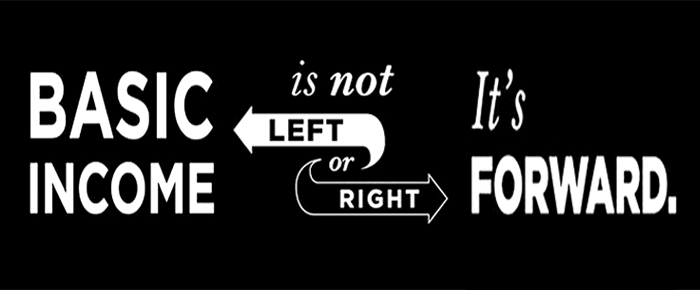
By Haddon Libby
As automation eliminates many jobs and third world countries strip us of lower paying jobs, what are displaced workers supposed to do?
If you believe that they should become retrained in another field in order to find another job, what do we do as a nation if there are 20% more working adults than jobs? What about 30%?
Two Oxford University professors recently wrote a paper where they found that 47% of all jobs in the United States are at risk of loss because of technology. When you add globalization to the mix, that means that at least half of all working-age Americans are at risk of becoming part of the long-term unemployed.
That level of unemployment would throw our economy into a tailspin that would lead to more unemployment, catastrophic human suffering and political instability. When you consider that this would be happening all over the world, you come to realize the gravity of this looming crisis.
Enter the concept of Universal Basic Income. Think of it as social security benefits for all people no matter their age. Under the Universal Basic Income theory, everyone would be guaranteed a basic level of income.
Switzerland is testing this idea with a ballot referendum on June 5th. If passed, the law would guarantee every adult approximately $2,000 a month and every child $700, while eliminating most social welfare systems.
Finland is planning for a similar ballot initiative in 2017 while the United Kingdom and Canada are currently reviewing the idea. Early tests in Canada found that an income floor encourages people to go to college and begin entrepreneurial ventures.
When thinking about how this might work in the United States, we start with a population of 322 million people. Assuming an earnings floor of $10,000 per person equates to a cost of $3.2 trillion per year. Current social welfare programs costing $1 trillion annually would be eliminated meaning that the actual costs would be $2.2 trillion. Retirees already have these benefits and receive $1.3 trillion from social security and Medicare annually. Eliminating them from this program (as they already get $1.3 trillion) reduces the program’s cost by $500 billion to $1.7 trillion. If you eliminate households earning $100,000 or more a year, the cost falls to $1 trillion. Some gradation of these benefits for families earning between $70,000 and $100,000 would bring the cost to less than $500 billion. When you consider administrative costs of more than eighty current programs that would be eliminated and the end of food stamps and housing vouchers, the basic income idea becomes a cost neutral idea to the federal budget.
A mix of conservatives and liberals support this concept. Many strongly liberal Silicon Valley executives are actively promoting this idea to their contacts in Washington DC.
Conservatives like Bill Gross, the billionaire money manager from Newport Beach, are supportive of the idea. Gross believes the Universal Basic Income concept will begin here in the United States in the next ten years.
The Universal Basic Income idea was first proposed by economist Milton Friedman in 1962. President Richard Nixon seized on this idea and advocated it to Congress in the late 1960s. Nixon’s proposal failed because of opposition by liberal Democrats. More than fifty years later, the political divide continues. Marco Rubio advanced a version of Basic Income in his policies while running for President this year while Hillary has been one of the most vocal opponents to the idea.
Liberal concerns are that those receiving public assistance at present would receive less under this plan while government jobs would decline.
As technology and globalization continue to change society as we have known it, dealing with these new issues with new ways of thinking will be critical if we are to maintain political stability both here and abroad while minimizing human suffering.
Haddon Libby is an Investment Advisor at Winslow Drake and can be reached at 760.449.6349 or HLibby@WinslowDrake.com.












































